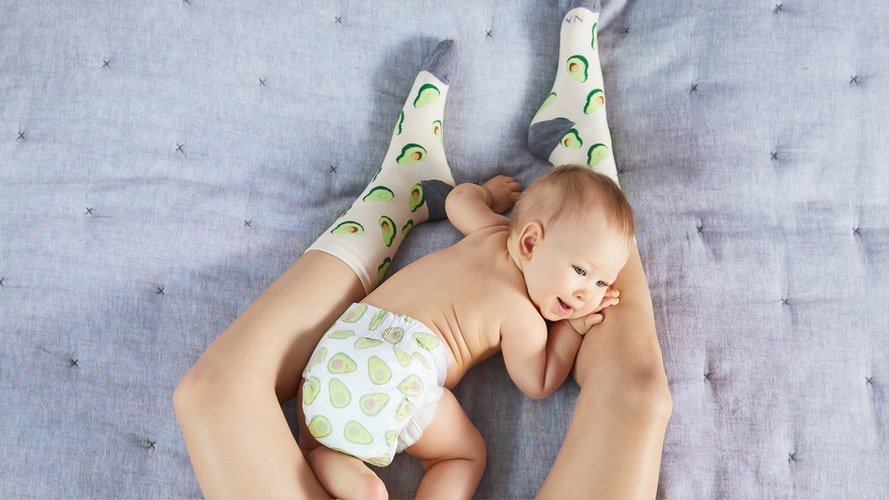Co-Sleeping With Your Baby Is Hazardous To Them: Yes or No?
Co-sleeping with your baby might be convenient and adorable. But are there any hazards to keeping your infant in your bed? Let’s find out!
Researchers have information about the possible health risks of infants sleeping on their stomachs, but what about parents co-sleeping with their babies?
In the U.S., bed-sharing with a newborn is a growing trend. Every year, more moms are opting to share a bed with their infants. In fact, the trend had grown from 6% in 1993 to 24% of parents in 2015.
But the American Academy of Pediatrics doesn’t accept the trend. According to the Academy, parents should share a room with their baby but should avoid bed-sharing.
More specifically, it advises against sleeping with babies who are younger than three months old. Co-Sleeping with your baby is not recommended if parents are excessively tired or have been using alcohol or medication.
So, is the crib the safest place for your baby to sleep?
Let’s see what research tells us.
Is co-sleeping with your baby safe?
One study based in New Zealand published in the journal Pediatrics monitored 40 healthy babies who were co-sleeping with at least one parent for five or more hours a night. The babies were between 0 and 6 months old. These babies were compared to 40 babies who slept alone in their cribs.
The study found that the babies who were co-sleeping with their parents experienced more desaturation events and were more often exposed to rebreathing.
Oxygen desaturation is a drop in the level of oxygen carried in the blood. Although mild episodes are common in infants, desaturation can be dangerous when it’s more severe. Desaturation happens because infants are warmer due to the parent’s presence in the bed.
Rebreathing happens when babies breathe the same air that they had let out. This event occurs due to the presence of the parent or their clothing.
However, the study fails to include the parents’ lifestyle habits, which are major factors. The risk of SIDS significantly increases if the parents are smokers or are taking medication. In cases where there’s an absence of hazards, the risks of bed-sharing decrease substantially.
Another study analyzed bed-sharing in the absence of hazardous circumstances. It found that the risk associated with bed-sharing in the absence of these hazards was not significant overall.
A third study concluded that smoking, alcohol, and drugs substantially increase the risk associated with bed-sharing.
Overall, the two studies suggest that the risk of a child dying while co-sleeping is very low in the absence of dangerous circumstances.
From looking at these studies, we can conclude that all co-sleeping is not the same. Every family is different and has a different amount of risk.
But the evidence is strong and clear that co-sleeping is particularly dangerous if the baby:
is younger than 3 months
is born preterm or with a low weight
sleeps on a soft surface
sleeps in a bed with soft bedding
shares a bed with a parent who drank alcohol or took medication
shares a bed with a parent who’s a smoker or has a parent who smoked during pregnancy
sleeps with multiple people
sleeps on a sofa
But isn’t co-sleeping a great way to bond with my baby?
Many parents have been opting to sleep with their child to respond more timely to the baby’s needs, such as hunger, discomfort, dehydration, or diaper issues. Being close and responding to baby’s needs more rapidly results in fewer baby tears and lowers the baby’s stress.
But even if your baby is younger than three months and sleeps on a separate surface, there are other effective and safer ways to bond with her. Reading, cuddle time, playing, bathing, singing, these are all great ways to create close bonds with the baby. In fact, every interaction you have with her creates a new bond in your relationship.
All in all, parents should receive education about the hazards of co-sleeping and help for lowering the risk of bed-sharing. Those families that are high risk for SIDS, such as parents who are taking medication or are smokers, should be advised how to bed-share more effectively.
Safe co-sleeping guidelines
Co-sleeping with your baby doesn’t have to be dangerous. If you prefer the concept of bed-sharing, you can make it happen by taking note of the safety practices outlined below:
Put your baby to sleep on his back on a flat and firm surface.
Avoid using loose bedding, toys, and other soft objects in the bed.
Avoid swaddling in bed and pajamas as this can make your baby too hot.
A great idea would be to get a bedside bassinet. It’s an ideal solution if you want to keep your baby close to you but you also want to keep her safe.
Never sleep with your baby if you’re overtired, have drunk alcohol, or have taken medication.
Don’t sleep with your baby if you’re a smoker or have smoked during pregnancy.
Your older children shouldn’t sleep with your baby if your baby is less than one year old.
If you have long hair, make sure you tie it up, so it doesn’t get wrapped around your baby’s neck.
Extremely obese people who may have difficulty feeling where exactly or how close their infant is in relation to their own body, should consider letting the baby sleep on a separate surface.
Final Word
To sum up, whether you’re co-sleeping with your baby or sleeping on separate surfaces, in the same room or different rooms, all infants are the safest when they sleep:
on their backs
on firm and clean surfaces
in the absence of smoke
under light blanketing
I would recommend learning all the possible options when it comes to sleeping and becoming as informed as possible. Learn everything there is to learn about sleeping arrangements with your baby and choose what works best for you and your family.

